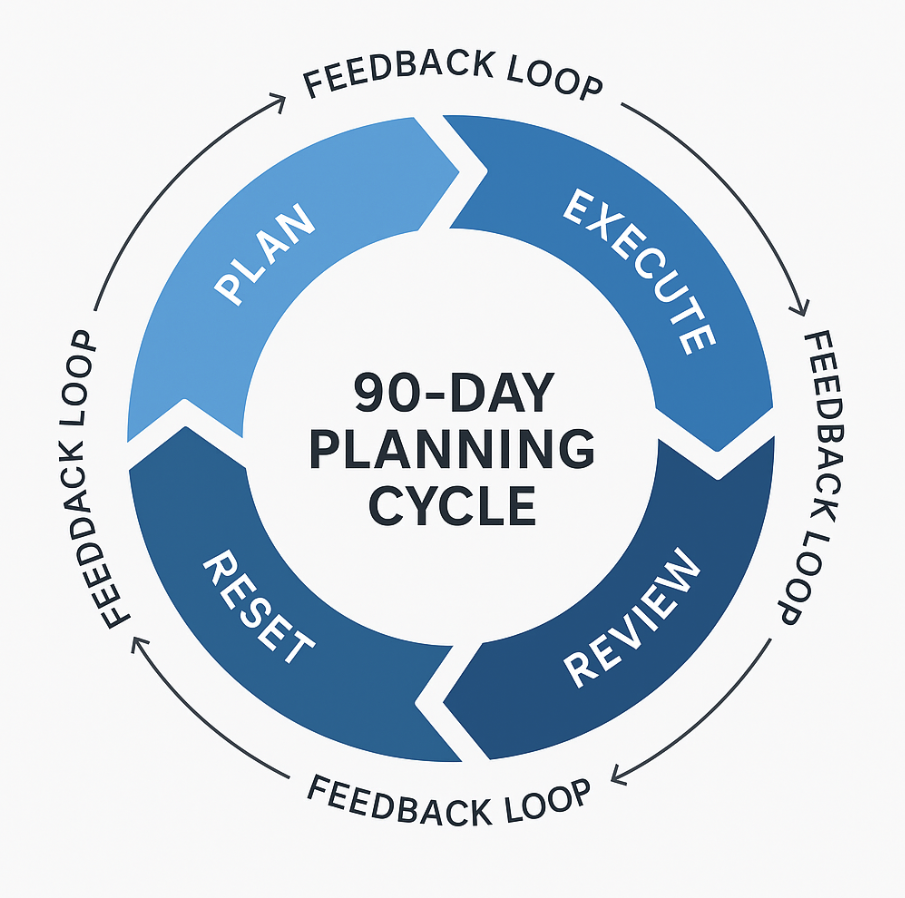Small and medium-sized businesses are often started by entrepreneurs that had a great idea and launched it into the world. Initial sales tend to be grown from their 'little black book' of contacts from their time in a similar corporate role. Or through their drive and passion for their business alone.
But what happens when the business owner moves to a more strategic role and passes the responsibility of sales to someone else? Many of these SMBs don't have a process in place to systemise sales. To manage customers and deals from a prospect through to managed accounts. And why would there be, when there wasn't a need for a process in the beginning? But the business has evolved, and change is now necessary.
In this post, we'll highlight some key reasons why your business and sales team will benefit from the implementation of a sales process.
Provides Continuity
Implementing a sales process keeps everyone on the same page. When your sales team are all working in the same way, it improves sales continuity.
When a sales process is designed and implemented well, the salesperson knows exactly what actions they need to take. From identifying a prospect, qualifying them and moving through the pipeline — all towards the ultimate goal of completing the sale.
Helps Predict and Measure Success
Without a sales process, it's difficult to track and measure the success of your sales team. How will you know what their conversion rate is from prospect to sale? How do you know if your team members are making enough contact? Are they driving enough qualified leads into the pipeline to ensure the business's sales targets are being hit?
Implementing a sales process isn't a stick to beat people with. Instead, it provides you with an overview of the activity of your team, which can be compared with actual sales. This helps managers be proactive with their teams — tracking performance and coaching them to be stronger in their role.
Strengthens Your Pipeline and Improves Internal Communications
Establishing a sales process will help shape and strengthen your pipeline of customers. As part of the process, your team should know exactly who they are targeting. This ensures your sales team acts based on criteria the business knows will lead to work with high profitability customers.
Your sales team doesn't work in isolation. In fact, it relies on other teams across the company to progress and close deals efficiently. You might need support from marketing to produce a branded case study to support a bid. Or the finance team to assess the creditworthiness of your potential client.
Your sales process allows you to pre-empt what you will need. This helps you communicate with your colleagues, giving them time to provide what you need. Have you ever tried to drop something on another team at the last minute? If you have, you'll understand this usually causes a headache for all involved.
But what happens when the business owner moves to a more strategic role and passes the responsibility of sales to someone else? Many of these SMBs don't have a process in place to systemise sales. To manage customers and deals from a prospect through to managed accounts. And why would there be, when there wasn't a need for a process in the beginning? But the business has evolved, and change is now necessary.
In this post, we'll highlight some key reasons why your business and sales team will benefit from the implementation of a sales process.
Provides Continuity
Implementing a sales process keeps everyone on the same page. When your sales team are all working in the same way, it improves sales continuity.
When a sales process is designed and implemented well, the salesperson knows exactly what actions they need to take. From identifying a prospect, qualifying them and moving through the pipeline — all towards the ultimate goal of completing the sale.
Helps Predict and Measure Success
Without a sales process, it's difficult to track and measure the success of your sales team. How will you know what their conversion rate is from prospect to sale? How do you know if your team members are making enough contact? Are they driving enough qualified leads into the pipeline to ensure the business's sales targets are being hit?
Implementing a sales process isn't a stick to beat people with. Instead, it provides you with an overview of the activity of your team, which can be compared with actual sales. This helps managers be proactive with their teams — tracking performance and coaching them to be stronger in their role.
Strengthens Your Pipeline and Improves Internal Communications
Establishing a sales process will help shape and strengthen your pipeline of customers. As part of the process, your team should know exactly who they are targeting. This ensures your sales team acts based on criteria the business knows will lead to work with high profitability customers.
Your sales team doesn't work in isolation. In fact, it relies on other teams across the company to progress and close deals efficiently. You might need support from marketing to produce a branded case study to support a bid. Or the finance team to assess the creditworthiness of your potential client.
Your sales process allows you to pre-empt what you will need. This helps you communicate with your colleagues, giving them time to provide what you need. Have you ever tried to drop something on another team at the last minute? If you have, you'll understand this usually causes a headache for all involved.
It Increases Win Probability
We've all done it. A prospect agrees to a meeting, and you've spent less time than you should preparing for it.
"I'll be fine. I'll wing it," is the mantra of the unprepared.
Except winging it lowers your win probability. Invariably it leaves you, the salesperson, walking away without a deal. The core of the sales process lies in the discovery stage. This is especially vital for large, complex deals with multiple stakeholders. Before any meeting, take the time to research and understand everything you can. This will help you be as prepared as possible to move the deal to the next stage and increase your chance of success.
How's your sales process looking?
It’s it time to take a step back and give your team the tools they need to hit their targets and achieve the company's sales objectives. We can help you with our sales training package, which designed to help you implement a defined sales process. Get in touch to learn more.






